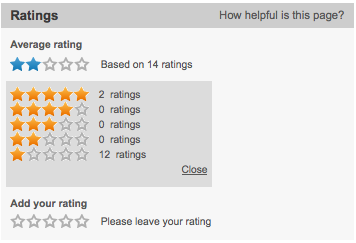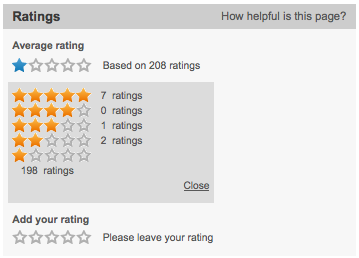On twitter, someone recently drew my attention to this article on the UK’s NHS (National Health Service) Choices website regarding dietary carbohydrate. Entitled ‘The Truth About Carbs’ it starts:
“Carbs” has become a dirty word in recent times, especially in the weight loss world, due in no small part to the popularity of low-carb diets such as the Atkins, Dukan and South Beach.
The “carbs are bad” mantra peddled by Dr Atkins and co has left many people confused about carbohydrates and their importance for your health, including maintaining a healthy weight.
Dietitian Sian Porter says: “Carbohydrates are such a broad category of foodand people need to know that not all carbs are the same.
“When people talk about carbs being fattening, they tend to mean bread, pasta, potatoes and rice. But these foods are an important part of a healthy balanced diet.”
Find out all you need to know about carbohydrates, their health benefits, healthier sources of carbs and how carbs can actually help you lose weight.
I’ve read through the article in full, and as the opening lines suggest, it takes a ‘carbs are good and fat is bad’ stance. We are told, for instance, that carbohydrates are a major source of energy. Well, that’s certainly going to be true if we eat a carb-rich diet. However, even on a very low-carb diet, individuals are able to get energy from somewhere. Much of it will come from the metabolism of fat, and some will also come from glucose manufactured from non-carb sources (specifically certain amino acids). The absolute requirement for carbohydrate in the diet for energy is actually none at all (if we’re going to be accurate about it).
We’re also informed that carbohydrate is important with regard to ‘disease risk’. Here we are told:
Vegetables, pulses, wholegrain varieties of starchy foods, and potatoes eaten with their skins on are good sources of fibre. Fibre is an important part of a healthy balanced diet. It can promote good bowel health, reduce the risk of constipation, and some forms of fibre have been shown to reduce cholesterol levels. Many people don’t get enough fibre. On average, most people in the UK get about 14g of fibre a day. We are advised to eat an average of 18g a day.
There is no mention here of the differences between ‘insoluble fibre’ and ‘soluble fibre’, and the fact that the idea that the former (found in wholegrain cereals and bread) is not the bowel ‘cure-all’ it’s often made out to be. We may be advised to eat 18 grams of fibre a day, but where did this magic figure come from, and what evidence is there that eating less than this somehow jeopardises health?
Under the section title ‘Weight reduction’ we are told that starchy foods are ‘low in calories and can be a good source of fibre, which means they can be a useful part of a weight loss plan’. Dietician Sian tells us that “The fibre physically fills you up and takes longer to digest, meaning you feel fuller for longer,” though she warns us to “Just watch out for the added fats used when you cook and serve them: this is what increases the calorie content.”
Later on, we are told that:
If Dr Atkins has instilled one message into our weight-conscious minds, it is that carbs are fattening. In fact, gram for gram, starchy foods contain fewer than half the calories of fat. Again, we are reminded of the supposed benefits of fibre in weight control: “Wholegrain varieties of starchy foods and potatoes eaten with their skins on are good sources of fibre. Fibre can help you to feel full, which means you’re less likely to overeat and put on weight.
There is absolutely no recognition in this article, though, of the influence of hormones such as insulin and leptin on fat storage, and the differing effects of the major macronutrients (e.g. fat and carbohydrate) here. Also, I think the idea that ‘fibre is filling’ is generally misleading. Most individuals recognise that eating bagfuls of apples or a roomful of rocket will simply not sustain them like, say, a meal with some protein and fat will. In fact, there is abundant evidence to show that low-carb diets generally satisfy far more effectively than high-carb one. When individuals adopt a low-carb diet, they very often are less hungry and eat less as a result. Typically, individuals will spontaneously eat several hundred calories less each day.
The article cites one study [1] as evidence of the fact that low-carb diets do not produce better weight loss than ‘more balanced’ ones in the long term. However, this study had more than 40 per cent of people drop out before its end, and we have no idea how well the remainder stuck to the prescribed diets.
How about we take a wider view? See here for a comprehensive review of 23 studies which have pitted low-carb diets again ‘better balanced’ low-fat ones in terms of the effects on weight loss and disease markers. You will see from this review that low-carb diets win hands-down.
The NHS Choices article about carbohydrate is, to me, rich in rhetoric, but light on science and balance. I think you can tell bias might be at play when Dr Robert Atkins’ low-carb premise is described as a ‘mantra’ that has been ‘peddled’ in the article’s opening lines.
To my mind, dietician Sian Porter and the NHS Choices website have done an appalling job of communicating the facts and summarising the evidence. For me, the article reads like a missive from the nutritional flat-Earth society.
However, I did manage to take one crumb of comfort from this article. Readers are invited to rate the article for usefulness. Here are the results:
It seems to me that many people are acutely aware of just how misleading, outdated and perhaps even hazardous the article is. Those who spout conventional nutrition wisdom that does not stand up to scrutiny are increasingly suffering from a major credibility issue. And they only have themselves to blame.
ADDENDUM – 21 Dec 2013 8.20 am GMT
I thought I’d check to see if how the article ratings were going. Here they are (below), and the public response appears to be even more emphatic than before. It seems the vast majority of readers believe that the NHS Choices website and their resident dietician have simply failed to provide helpful (or accurate) information on carbohydrate. In short, I think many regard ‘The Truth About Carbs’ to be a pack of lies.
References:
1. Foster GD, et al. A randomized control trial of a low carbohydrate diet for obesity. N Engl J Med 2003;348:2082–2090.

